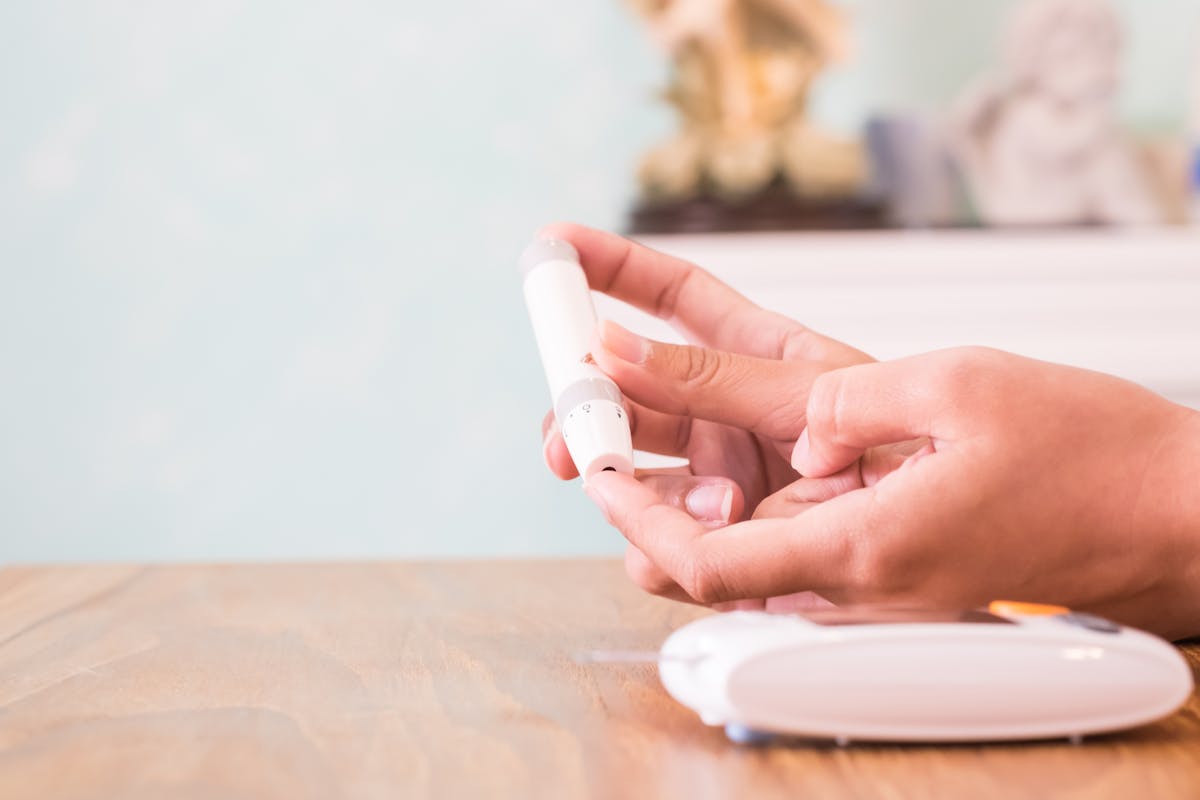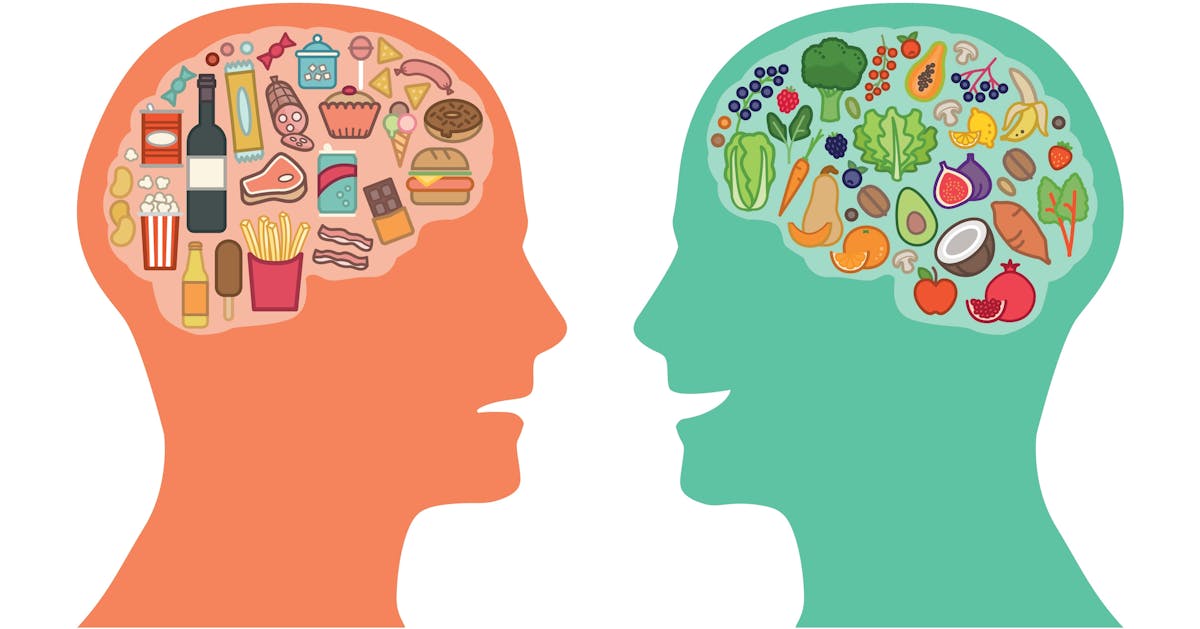FAQ about low-carbohydrate diets and mental health
Do you have questions about how adopting a low-carb lifestyle might affect your mood and psychological wellbeing? Well, we have answers! Scroll down and check out some of the most common questions people with mental health issues ponder before beginning a low-carb diet.
Need more information? Check out our related low carb and mental health guides: The food-mood connection, How sugar may damage the brain, or Getting started and managing medications.
When will I start feeling better?
Unfortunately, your mood may actually temporarily get worse before it gets better. Irritability, depression, fatigue, mood swings, sleep changes, and cravings for sweets and starches are among the possible carbohydrate “withdrawal” effects, particularly if your previous diet was high in refined carbohydrates like sugar and flour.1 It can help to ease the transition if you make other healthy changes to your diet first before you embark on your low-carbohydrate journey.
The first few days of a low-carbohydrate diet are usually the hardest, but some people need more time to transition. During the first week or two, it’s best if you have good people around who know you well and who can support you through the rough patches. If you feel unsafe, out of control, or just plain miserable for too long, don’t be a hero. You can always simply return to your previous diet, regroup, and make a new plan. While low-carbohydrate diets aren’t right for everyone, some reflection, troubleshooting, and adjustment can go a long way toward helping future attempts feel more comfortable if you decide to try again.2
How many carbs can I have per day?
Carbohydrate tolerance varies from person to person, but a reasonable starting point that brings noticeable benefits for most people is a maximum of 20 grams of whole-food sources of net carbohydrate per day, spread out over the course of the day. There is no minimum daily requirement for carbohydrates, so you cannot go too low.
Do I have to be in ketosis?
Unfortunately, we have very little research available to help answer this question. This study of people with pre-Alzheimer’s disease suggests that higher ketone levels brought better results, and this is certainly the case for some of my own patients with various psychiatric disorders who report feeling best if their blood ketone levels are somewhere between 1.0 mM and 2.5 mM.3 However, I have worked with many patients who experience significant benefits simply by improving the overall quality of their diet (for example: removing all highly processed foods, eliminating gluten and/or dairy, or switching to a “paleo”-style dietary pattern) or by following a simple low-carbohydrate diet without being in ketosis.4 If you have tried these approaches and have been unsatisfied with the results, it’s worth investing in a blood ketone meter if you can, to see if you notice any connection between your own ketone levels and how you feel.

Which is the best ketone meter on the market?
GuideWith a blood-ketone meter, you can test for blood levels of beta hydroxybutyrate, a ketone that your body produces when in ketosis. Making it into ketosis can help supercharge weight loss and deliver other benefits like appetite control, mental clarity, and improved health.
Should I take ketone supplements?
There is very little research available to help answer this question. Alzheimer’s disease research has produced a couple of studies finding that ketone supplements or MCT (medium chain triglyceride) oil may be beneficial for brain function in the short-term.5 However, the benefits disappeared as soon as the supplements were stopped. Supplements are unlikely to improve underlying health, probably because they don’t lower insulin levels — in fact there is some evidence to suggest that under some circumstances they may even raise insulin levels.6 It may therefore be best to generate ketones from inside your own body by making lifestyle changes that lower insulin levels if you can. Although we can’t rule out the possibility that higher ketone levels may beneficially affect the brain, especially if one combined a ketone supplement with dietary carbohydrate restriction.
What about caffeine and alcohol?
Low-carbohydrate living requires giving up many of our favorite addictive foods and beverages, and it can be tempting to substitute new vices for the old ones. Low-carbohydrate alcoholic beverages and sugar-free caffeinated beverages are popular and trendy in some low-carbohydrate communities. Alcohol and caffeine are mind-altering drugs with the potential for significant psychiatric side effects which vary depending on the quantity, the pattern of use, and the individual. Pay careful attention to how these substances affect you and know your limits.
Both alcohol and caffeine, even in modest amounts, raise stress hormone levels and can cause anxiety and insomnia.7 Alcohol, like sugar, can promote oxidative stress, which can damage and even kill brain cells over time (see part two of this guide).8 Regular alcohol use has been linked to depression (and vice versa) along with many other psychiatric conditions.9 I’ve noticed in my clinical practice that, for some people, even an occasional drink with dinner can impair concentration, mood, and productivity the following day.10
If you are struggling with mental health issues of any kind, you owe it to yourself to see how you feel without these substances in your life, so you can make an informed decision about their risks and benefits. If alcohol is a significant part of your life, you may need professional support to safely and successfully stop drinking.
What if low-carb doesn’t help enough, or makes me feel worse?
If a whole-foods low-carbohydrate or ketogenic diet doesn’t bring you the benefits you were hoping for, take heart! There are additional adjustments you can make that your brain may appreciate. Eating a low-carbohydrate diet supports healthy brain metabolism, but other aspects of nutrition matter, too.
Just because a diet is low in carbohydrate doesn’t guarantee it contains everything your brain needs for optimal function. Nutrient deficiencies such as iron, zinc, and B12 deficiency can all contribute to poor mental health, so it’s important to discuss nutrient deficiency testing with your health care provider, include some animal foods in your diet if you can, and learn which foods increase risk for deficiencies.11 If you eat a vegan diet, it is mandatory to keep track of these nutrients and to consider the need for supplementation, as plant foods lack several essential nutrients. 12 This guide can help you meet your essential nutrition needs on a low-carb vegan diet.
If you feel worse on your new low-carbohydrate diet, one possibility is that you have an unrecognized sensitivity to a food that you are eating now that you didn’t eat much of before. Common allergy and sensitivity culprits include some beloved low-carbohydrate staples like dairy products, nuts, and eggs. In some people, food intolerances can contribute to anxiety, brain fog, fatigue, insomnia, and other frustrating symptoms.13
There are studies suggesting that many children with ADHD can improve significantly on low-allergen diets, and gluten reactivity has been convincingly linked to some cases of autism and psychosis.14 Although low-carbohydrate diets tend to be naturally low in gluten, they are rarely gluten-free due to hidden sources of gluten lurking in processed and prepared foods.15
Unlike true allergies, there are no reliable tests for food sensitivities, so experimental elimination is the only way to know if a particular food is bothering you.
Do I have to be perfect about my diet?
Expecting perfection can be a recipe for failure.16 Changing any lifelong habit is hard. Do your best, but aim for progress, not perfection. It’s difficult to let go of carbohydrates — especially the refined carbohydrates — because they are delicious, convenient, inexpensive, and potentially addictive.17 If you aren’t successful on your first attempt, try again later. Like any new behavior, it gets easier with practice. It’s not uncommon to fall off the wagon from time to time or to intentionally take breaks on special occasions. Don’t judge yourself — stay curious about your experiences and learn from your mistakes.
Who are you underneath all that sugar?
If you have any problems with concentration, motivation, mood, energy, productivity, or outlook, you owe it to yourself to discover what a healthier diet can do for you.
Most of us have been feeding our brains improperly our entire lives and have no idea how much better we could feel if we ate differently.
You may think of yourself as anxious or depressed by nature. You may have been told that you’ve been a low-energy or scattered person since you were a child. You may even have been diagnosed with a serious mental illness, been hospitalized, or been told you will need psychiatric medication for the rest of your life. Yet, the only way to know how you really feel and what you’re truly capable of is to remove the foods that are working against your good mental health and see how you feel.18 A whole-foods, low-carbohydrate diet is a safe, nutritious, healthy strategy that can help you reveal your personal best.
We hope these frequently asked questions — and the encouraging answers — give you hope. Although there are still many uncertainties, there is great potential for food to heal both the body and the mind. If you struggle with anxiety, depression, or other psychiatric conditions, we encourage you to give low-carb eating a try. Please see our guide, Low carb and mental health: Getting started and managing medications for the safest way to begin your journey!
FAQ about low-carbohydrate diets and mental health - the evidence
This guide is written by Dr. Georgia Ede, MD and was last updated on September 30, 2022. It was medically reviewed by Dr. Bret Scher, MD on April 3, 2020.
The guide contains scientific references. You can find these in the notes throughout the text, and click the links to read the peer-reviewed scientific papers. When appropriate we include a grading of the strength of the evidence, with a link to our policy on this. Our evidence-based guides are updated at least once per year to reflect and reference the latest science on the topic.
All our evidence-based health guides are written or reviewed by medical doctors who are experts on the topic. To stay unbiased we show no ads, sell no physical products, and take no money from the industry. We're fully funded by the people, via an optional membership. Most information at Diet Doctor is free forever.
Read more about our policies and work with evidence-based guides, nutritional controversies, our editorial team, and our medical review board.
Should you find any inaccuracy in this guide, please email andreas@dietdoctor.com.
This is based on consistent clinical experience of low-carb practitioners. [weak evidence]
It is also supported by the following RCT:
Peer Journal 2019: Low-carbohydrate diets differing in carbohydrate restriction improve cardiometabolic and anthropometric markers in healthy adults: A randomised clinical trial. [randomized trial; moderate evidence] ↩
This is based on consistent clinical experience of low-carb practitioners. [weak evidence] ↩
Neurobiology of Aging 2012: Dietary ketosis enhances memory in mild cognitive impairment [randomized trial; moderate evidence]
↩Nutrition & Metabolism 2009: Study of the ketogenic agent AC-1202 in mild to moderate Alzheimer’s disease: a randomized, double-blind, placebo-controlled, multicenter trial [moderate evidence]
Neurobiology of Aging 2004: Effects of ß-hydroxybutyrate on cognition in memory-impaired adults [RCT, moderate evidence] ↩
Frontiers in Physiology 2017: On the metabolism of exogenous ketones in humans [randomized trial; moderate evidence]
↩Journal of Biological Rhythms 2014: Effects of caffeine on skin and core temperatures, alertness, and recovery sleep during circadian misalignment [reviews of mechanisms; ungraded]
The Canadian Journal of Psychiatry 2016: Alcohol effects on stress pathways: impact on craving and relapse risk [reviews of mechanisms; ungraded] ↩
Oxidative Medicine and Cellular Longevity 2016: Lipids and oxidative stress associated with ethanol-induced neurological damage [reviews of mechanisms; ungraded] ↩
Alcohol use
Addiction 2011: Alcohol and depression [review of observational studies; weak evidence]
Other psychiatric conditions
Alcohol Research and Health 2002: Alcoholism and psychiatric disorders: diagnostic challenges [reviews of mechanisms; ungraded] ↩
Journal of Nutrition and Healthy Aging 2006: Effects of nutrients (in food) on the structure and function of the nervous system: update on dietary requirements for brain. Part 1: micronutrients. [overview article; ungraded] ↩
Annals of Nutrition and Metabolism 2006: B-vitamin status and concentrations of homocysteine in Austrian omnivores, vegetarians and vegans. [observational study, weak evidence] ↩
This is based on consistent clinical experience of low-carb practitioners. [weak evidence] ↩
Children with ADHD:
This article includes a meta-analysis of seven small randomized controlled trials of elimination and low-allergen diets; while outcomes are solid, consistent, and positive, there are methodological weaknesses, therefore the strength of the evidence is moderate.
American Journal of Psychiatry 2013: Nonpharmacological interventions for ADHD: systematic review and meta-analyses of randomized controlled trials of dietary and psychological treatments [moderate evidence]
Cases of autism and psychosis
Frontiers in Human Neuroscience 2016: Bread and other edible agents of mental disease [weak evidence] ↩
Practical Gastroenterology 2008: Hidden sources of gluten [overview article; ungraded] ↩
This is based on consistent clinical experience of low-carb practitioners. [weak evidence] ↩
Current Opinion in Clinical Nutrition & Metabolic Care 2013: Sugar addiction: pushing the drug-sugar analogy to the limit [observational and mechanistic study; weak evidence]
↩This is based on consistent clinical experience of low-carb practitioners. [weak evidence] ↩



